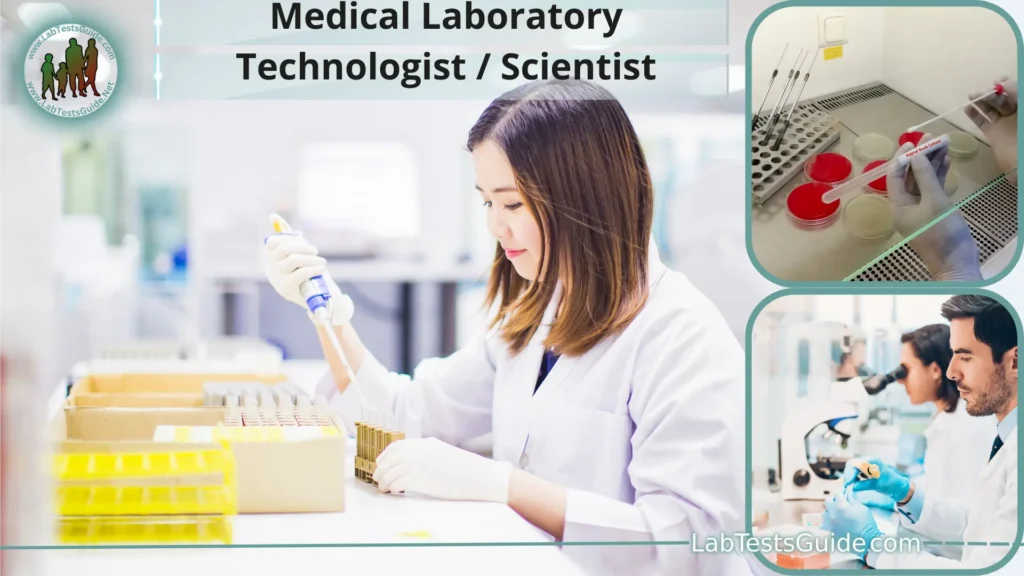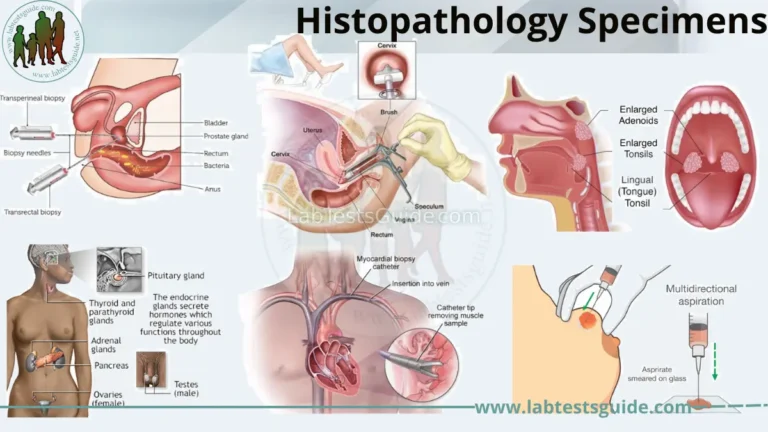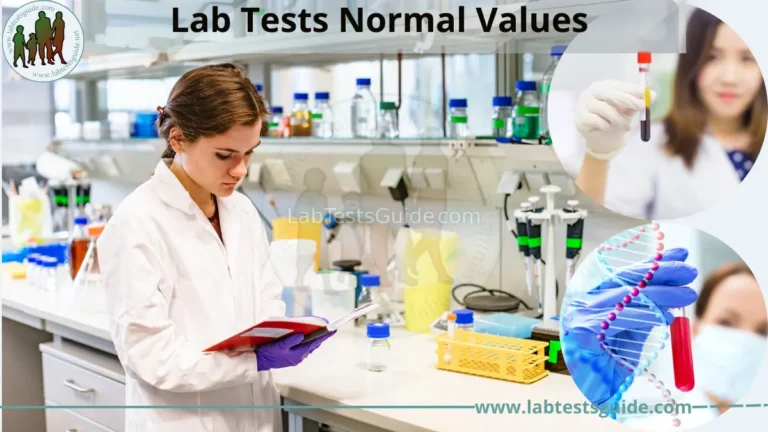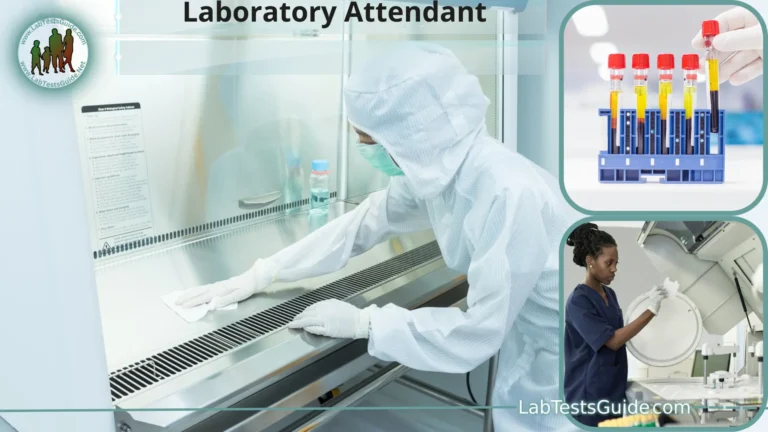A Medical Laboratory Technologist, also known as a Medical Laboratory Scientist, plays a crucial role in the healthcare system by performing various laboratory tests and analyses that help diagnose, treat, and monitor patients’ medical conditions. These professionals work in clinical laboratories, hospitals, research facilities, and other healthcare settings.

Explore the vital role of Medical Laboratory Technologists and Scientists in modern healthcare. Discover their responsibilities, educational requirements, skills, and contributions to accurate diagnosis and patient care. Learn how these professionals uphold the highest standards in laboratory testing and contribute to medical advancements.
Career Prospects for Medical Laboratory Technologist / Scientist:
Career prospects for Medical Laboratory Technologists/Scientists are generally positive, with a growing demand for these professionals in the healthcare industry. Several factors contribute to favorable career opportunities in this field:
- Increasing Healthcare Needs: As the global population continues to grow and age, the demand for healthcare services, including laboratory testing, is on the rise. Medical Laboratory Technologists play a crucial role in diagnosing and monitoring various medical conditions, making their skills in high demand.
- Advancements in Medical Technology: Advances in medical technology and diagnostics have expanded the range of tests and procedures conducted in laboratories. This has created a need for skilled professionals who can operate, maintain, and interpret the results of these sophisticated instruments.
- Disease Detection and Prevention: Medical Laboratory Technologists are instrumental in disease detection, prevention, and research. Their work is vital in identifying and monitoring infectious diseases, chronic conditions, and genetic disorders, contributing to improved patient outcomes.
- Specialization Opportunities: Within the field, there are various specializations such as hematology, microbiology, immunology, molecular diagnostics, and more. These specializations allow professionals to focus on specific areas of interest and expertise.
- Global Health Challenges: Events such as pandemics and the ongoing need for routine testing for diseases like diabetes and cancer highlight the critical role of Medical Laboratory Technologists in addressing global health challenges.
- Laboratory Management and Leadership Roles: Experienced technologists may progress into roles such as laboratory managers, supervisors, or educators. These positions offer leadership opportunities and often come with higher salaries.
- Competitive Salaries: Medical Laboratory Technologists typically enjoy competitive salaries, which can vary based on factors such as location, experience, specialization, and credentials. Many professionals find this career financially rewarding.
- Job Stability: Healthcare is considered a recession-resistant industry, and the need for laboratory testing remains constant even during economic downturns. This provides job stability for Medical Laboratory Technologists.
- Telemedicine and Remote Work: Advances in technology have allowed for remote monitoring and telemedicine services. Some Medical Laboratory Technologists may have opportunities to work remotely or in telehealth-related roles.
- Research and Innovation: Working in research laboratories or in collaboration with healthcare professionals and researchers allows for involvement in cutting-edge medical research and innovation.
Qualifications and Education:
Qualifications and education requirements for a career as a Medical Laboratory Technologist/Scientist may vary by region and employer, but the following are common steps and requirements:
1. Educational Requirements:
- Bachelor’s Degree: Many Medical Laboratory Technologists hold a bachelor’s degree in Medical Laboratory Science, Clinical Laboratory Science, or a related field. A bachelor’s degree program typically takes four years to complete.
- Associate Degree: Some programs offer a two-year associate degree in Medical Laboratory Technology. This option provides a quicker entry into the field but may have limitations in terms of career advancement and specialization.
2. Accredited Program:
It’s important to choose an educational program accredited by a recognized accrediting agency, such as the National Accrediting Agency for Clinical Laboratory Sciences (NAACLS) in the United States. Accreditation ensures that the program meets established quality and curriculum standards.
3. Clinical Training:
In addition to coursework, most programs include a clinical training component, where students gain hands-on experience in a clinical laboratory setting. This practical training is essential for developing the skills and competencies required for the job.
4. Certification:
After completing their education and clinical training, individuals typically need to obtain certification from a recognized professional organization. In the United States, for example, the American Society for Clinical Pathology (ASCP) and the American Medical Technologists (AMT) offer certification exams.
5. State Licensure (if applicable):
Some states in the United States require Medical Laboratory Technologists to obtain a state license to practice. Licensing requirements vary by state and may include passing a state-specific exam or meeting other criteria.
6. Continuing Education:
To maintain certification and stay up-to-date with advancements in the field, Medical Laboratory Technologists are often required to participate in continuing education programs. This may involve taking additional courses, attending workshops, or earning continuing education credits.
7. Specialization (Optional):
While not always required, pursuing a specialization in areas such as hematology, microbiology, immunology, or molecular diagnostics can enhance career prospects and open up opportunities for more specialized roles.
8. Soft Skills and Qualities:
In addition to formal education and certification, successful Medical Laboratory Technologists should possess certain soft skills and qualities, including:
- Attention to detail
- Analytical thinking
- Communication skills
- Problem-solving abilities
- Ethical and professional conduct
- Teamwork and collaboration
Specializations:
- Hematology: Specializing in the study of blood and blood-related disorders, including blood cell counts, coagulation studies, and blood chemistry.
- Microbiology: Focusing on the identification and analysis of microorganisms such as bacteria, viruses, fungi, and parasites, particularly in clinical specimens.
- Immunology: Concentrating on the immune system and the detection of antibodies, antigens, and immune responses in laboratory tests.
- Molecular Diagnostics: Specializing in the use of molecular techniques like PCR (Polymerase Chain Reaction) to detect genetic material and diagnose diseases at a molecular level.
- Clinical Chemistry: Analyzing chemical components in bodily fluids like blood and urine to assess organ function, electrolyte balance, and metabolic disorders.
- Blood Banking/Transfusion Medicine: Managing blood donations, ensuring compatibility, and providing safe blood products for transfusion.
- Cytotechnology: Focusing on the examination of cellular samples to detect abnormal or cancerous cells, primarily in cytology and histology laboratories.
- Clinical Genetics: Specializing in genetic testing, counseling, and the diagnosis of inherited genetic disorders.
- Immunohematology (Blood Banking): Concentrating on the study of blood groups, compatibility testing, and the provision of safe blood products for transfusion.
- Chemical Pathology: Analyzing bodily fluids and tissues to diagnose metabolic disorders, endocrine disorders, and diseases related to organ dysfunction.
Skills and Qualities:
To excel as a Medical Laboratory Technologist/Scientist, individuals need a combination of technical skills and personal qualities. Here are some of the key skills and qualities required for success in this profession:
Technical Skills:
- Laboratory Techniques: Proficiency in a wide range of laboratory techniques, including sample preparation, instrumentation operation, and data analysis.
- Analytical Skills: The ability to analyze and interpret complex data, identify abnormalities, and draw meaningful conclusions from test results.
- Attention to Detail: Precision is crucial in laboratory work to ensure the accuracy and reliability of test results. Small errors can have significant consequences.
- Problem-Solving: The capability to troubleshoot technical issues, equipment malfunctions, and unexpected test results.
- Computer Skills: Competence in using laboratory information systems (LIS) and other software for data entry, analysis, and report generation.
- Quality Control: Knowledge of quality assurance and quality control procedures to maintain the accuracy and consistency of test results.
- Laboratory Safety: Strict adherence to safety protocols and procedures to protect oneself and others from potential hazards.
Personal Qualities:
- Ethical and Professional Conduct: A strong commitment to ethical practices, including confidentiality, honesty, and integrity when handling patient data and laboratory processes.
- Communication Skills: Effective communication with healthcare providers, colleagues, and patients when necessary. Clear and concise reporting of test results and findings.
- Teamwork: Collaboration with other healthcare professionals, such as doctors, nurses, and pathologists, to ensure comprehensive patient care.
- Adaptability: The ability to adapt to changes in technology, procedures, and healthcare regulations to stay current in the field.
- Stress Management: Laboratory work can be high-pressure. Effective stress management skills help maintain accuracy and focus.
- Time Management: Efficiently manage tasks and prioritize work to meet deadlines and ensure timely test results.
- Empathy: A compassionate and empathetic approach, recognizing that test results can have a significant impact on patient care and well-being.
- Continuous Learning: A commitment to lifelong learning and professional development to stay updated with advancements in medical laboratory science.
- Organizational Skills: Keeping accurate records, managing laboratory inventory, and maintaining a well-organized work environment.
- Critical Thinking: The ability to think critically and make sound decisions when faced with complex situations or unexpected challenges.
Job Description / Responsibilities:
- Collecting Specimens: Safely and accurately collect blood, urine, tissue, and other patient samples for laboratory testing.
- Laboratory Testing: Perform a wide range of diagnostic tests, such as blood chemistry, microbiology, and hematology, to detect and analyze medical conditions.
- Instrument Operation: Operate and maintain laboratory equipment, including automated analyzers, microscopes, and centrifuges.
- Quality Control: Conduct routine quality control checks on laboratory equipment and test procedures to ensure the accuracy and reliability of results.
- Data Analysis: Analyze test results, interpret findings, and identify abnormal or unusual results for further investigation.
- Record-Keeping: Maintain detailed and accurate records of all tests performed, patient information, and results in compliance with regulatory standards.
- Report Generation: Prepare and communicate test results to healthcare providers and physicians, often in a timely manner for immediate patient care decisions.
- Infection Control: Adhere to strict safety and infection control protocols to minimize the risk of contamination and maintain a safe working environment.
- Calibration and Maintenance: Regularly calibrate and maintain laboratory equipment to ensure accurate test results.
- Inventory Management: Manage laboratory inventory, including reagents, supplies, and disposables, and reorder items as needed.
- Specimen Handling: Properly handle and store specimens to prevent contamination or degradation.
- Specialization: Depending on specialization (e.g., microbiology, immunology), perform specialized tests and analyses specific to the area of expertise.
- Blood Typing and Crossmatching: In blood banking, perform blood typing and crossmatching to ensure safe transfusions.
- Cytological Analysis: Examine cellular samples for abnormalities, such as cancer cells, in cytology and histology laboratories.
- Genetic Testing: Conduct genetic testing to diagnose inherited genetic disorders or assess genetic predispositions.
- Molecular Diagnostics: Utilize molecular techniques, such as PCR, for the detection of genetic material and infectious agents.
- Serology: Perform serological tests to detect antibodies and antigens, often used in infectious disease testing.
- Immunohistochemistry: Use immunohistochemical techniques to analyze tissue samples for specific proteins and markers.
- Research Support: Assist in research studies and clinical trials by conducting laboratory tests and collecting data.
- Continuing Education: Stay updated with the latest advancements in laboratory science through ongoing education and training programs.
Possible References Used






